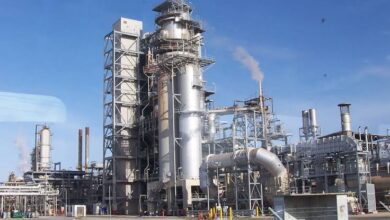
The Federal Government has called for more investments in the oil and gas industry in order to ramp up production and increase the nation’s foreign exchange earnings.
The Minister of State, Petroleum Resources (Oil), Senator Heineken Lokpobiri made the call on Tuesday at the opening of the Nigeria Oil and Gas (NOG) Energy Week currently holding in Abuja, Nigeria.
Although the country has 37.5 billion barrels of proven crude oil reserves and 209 tcf and 600 tcf of proven and contingent gas reserves respectively, it finds itself in a situation where its daily production has significantly dropped to about 1.3 million barrels of oil and 8.5 bcf of gas.
Lokpobiri who blamed the development on lack of drilling investments in the sector, disclosed that efforts are ongoing to change the narrative by attracting more investments into the sector.
“We have been working hard to ramp up production. The overall objective is to increase production. It is when we ramp up production that we will be able to get the requisite forex inflow into the country, get money to fund our budget, and satisfy energy demand. But you can only increase production by way of increasing investments”, the Minister said.
Also speaking, the Minister of State, Petroleum Resources (Gas), RT. Hon. Ekperikpe Ekpo said, investment is the lifeblood of the oil and gas sector.
He said, the Ministry has been instrumental in implementing reforms that make Nigeria an attractive destination for both local and international investors.
Hon. Ekperikpe maintained that the Petroleum Industry Act (PIA) 2021 and the recent Presidential Directive for Oil and Gas Companies on Tax Incentives, Exemption, Remission, etc. by President Bola Tinubu, have created a conducive environment for investment.
According to him, these reforms ensure transparency, accountability, and regulatory certainty, making Nigeria an attractive destination for investors.
“The regulatory frameworks now in place incentivize investment, streamline bureaucratic processes, and provide clarity on fiscal terms”, he noted.
Speaking via teleconference, the OPEC Secretary-General, H.E Haitham Al Ghais
noted that the voices calling for discontinuation of investment in hydrocarbons are not in touch with reality as large corporations and governments are beginning to re-evaluate their transition strategies and timelines.
He further noted that the rush to adopt “Net-Zero” strategies was misguided and simply not realistic, as developing countries continue to balance priorities between developing their national economies and addressing climate change.
The OPEC scribe submitted that with energy demand expected to rise by an estimated 23% by 2045, which will be fueled by a world economy that is expected to double in size, growing from $138 trillion last year to $270 trillion in 2045, and a rapidly expanding world population that will surpass 9.5 billion people, with most growth seen in non-OECD developing countries, with half a billion people moving to cities around the world by 2030, the world will require all forms of energy to meet long-term energy needs.
He expressed confidence that oil and gas will remain the predominant fuels in the energy mix.
“In fact, oil alone will retain its share at almost 30% in 2045 as world demand for oil soars to an estimated 116 mb/d by that time”, OPEC boss said.
To meet this rapid and robust growth in energy consumption, he said, the industry will need to boost investment levels significantly in the years to come, saying that cumulative oil-related investment requirements from now until 2045 will amount to approximately $14 trillion or around $610 billion on average per year.
“Securing this vital funding is essential to maintaining security of supply and avoiding unwanted volatility”, he noted.
He pointed out that an estimated 675 million people are with no access to basic forms of energy and 2.3 billion without access to clean cooking fuels.
While calling for joint effort to tackle the issue of energy poverty, he said, the World leaders must unite and advocate for the necessary support and resources to make a difference in addressing this important matter.
Earlier, the Chairman, Independent Petroleum Producers Group (IPPG), Mr. Abdulrazaq Isa called for urgent measures by all relevant stakeholders to address the dwindling production level and under-investment in the oil and gas industry.
He noted that despite nation’s world class hydrocarbon resource base, with over 37 billion barrels of proven crude oil reserves and 207 tcf and 600 tcf of proven and contingent gas reserves respectively, the country finds itself in a situation where its daily production has significantly dropped and lies at a about 1.3 million barrels of oil and 8.5 bcf of gas today.
“This is way below our capacity as a nation and by all globally acceptable standards, this reserves to production ratio is extremely low and a clear indicator that the industry is in a dire situation.
“In addition, we now run the risk of partial implementation of our national budget considering an estimated deficit of 400,000 bpd from the forecasted 1.78 million bpd.
“This trend in production portends another frightening dimension when we consider that in the not-too-distant future our overall installed domestic refining capacity, currently closing in on about 1.2million barrels per day, may soon outstrip our current crude oil production level with the risk of Nigeria finding itself in a position where it is unable to meet its domestic refinery crude demand or even become a net importer of crude oil, God forbid!”, he said.
To change the trend, IPPG said, there is a need to focus on four priority areas, like the immediate conclusion of all pending IOC divestment transactions, urgent need to address deepwater development and production, adoption of a national value-retention strategy, and the development of Nigeria’s gas resources to catalyse economic growth and complement decarbonisation drive.
These priority areas, according to him, will provide the most realistic and sustainable pathway towards meeting the national long term production aspiration of 4 million barrels of oil per day and 13 billion cubic feet of gas per day.






